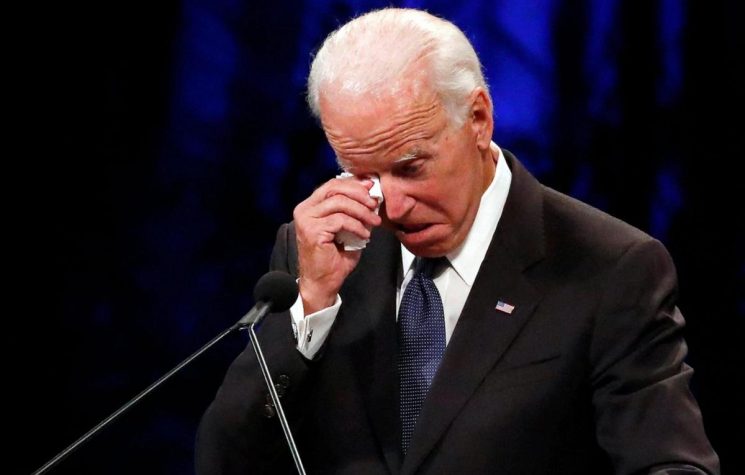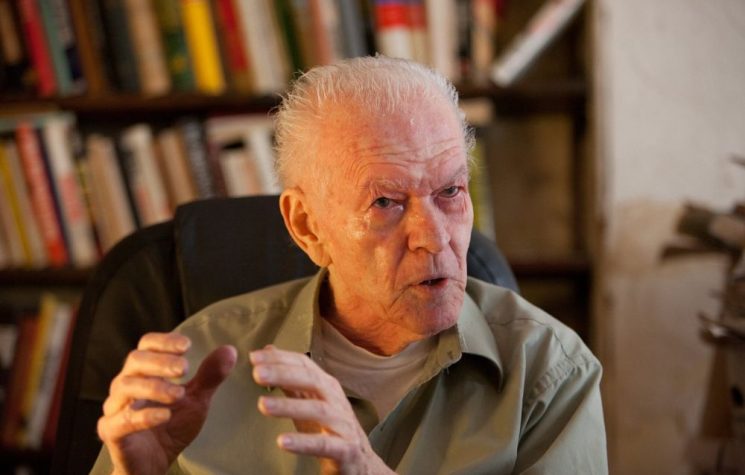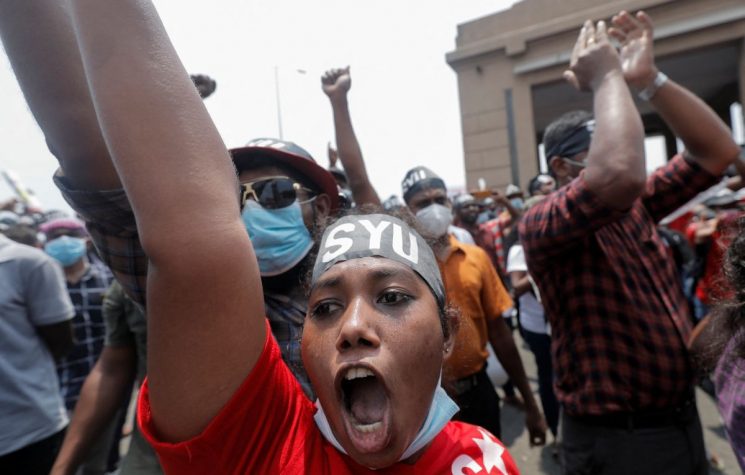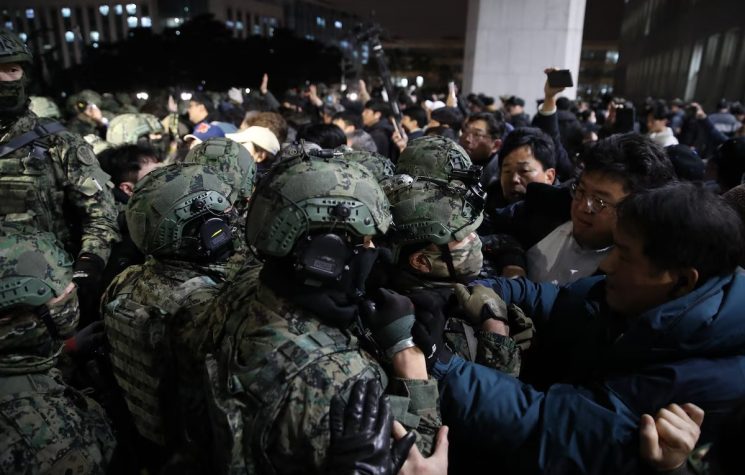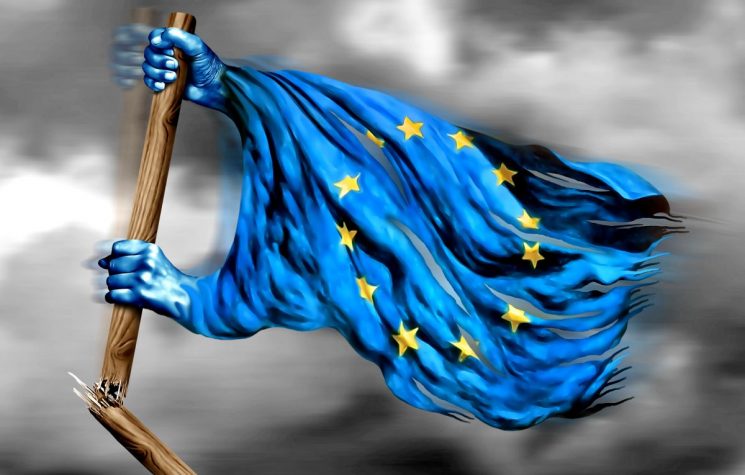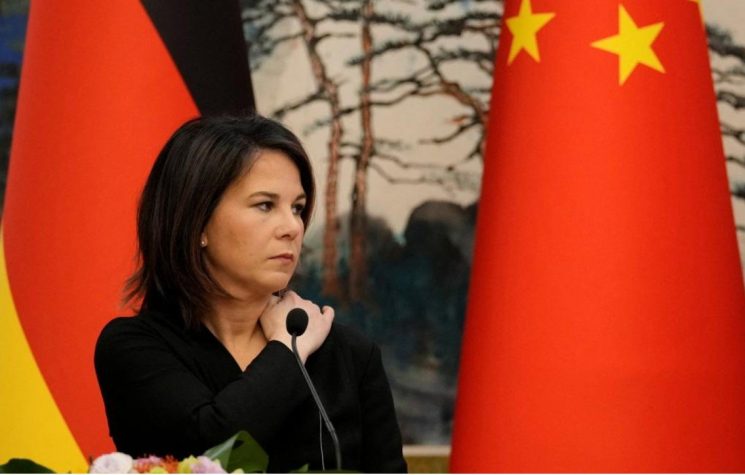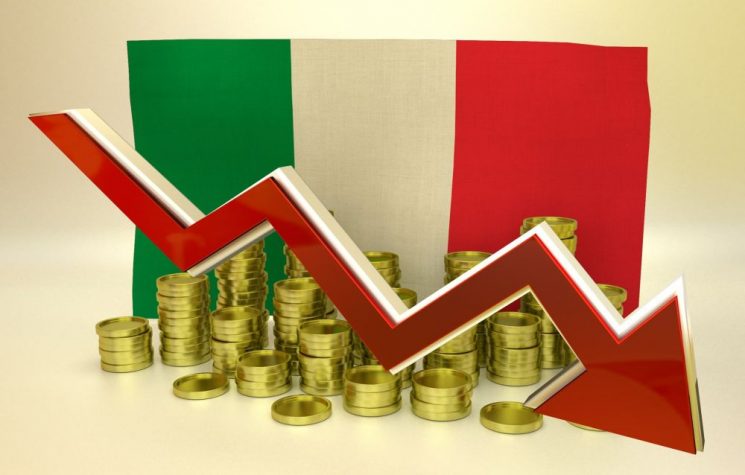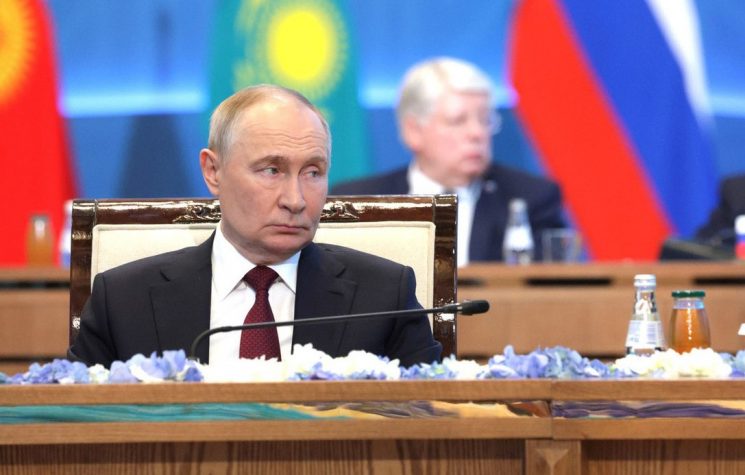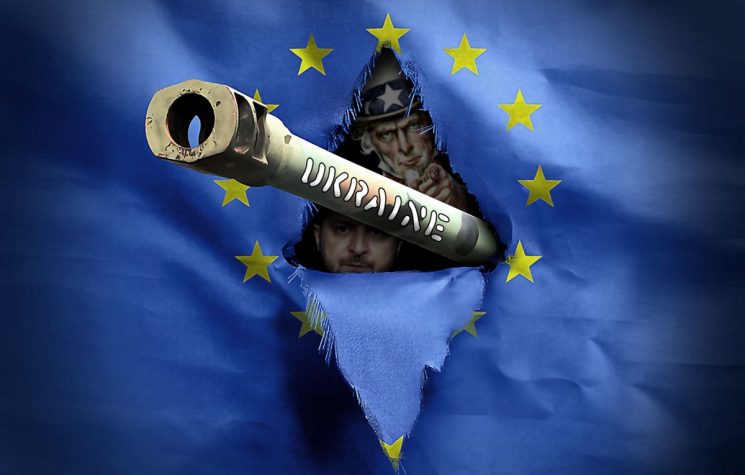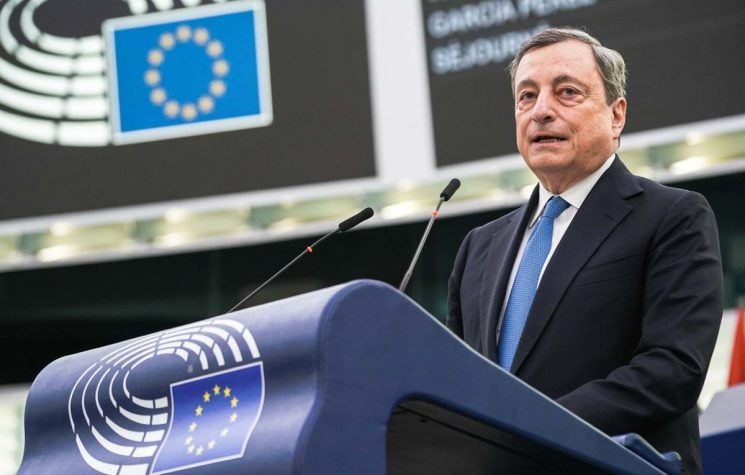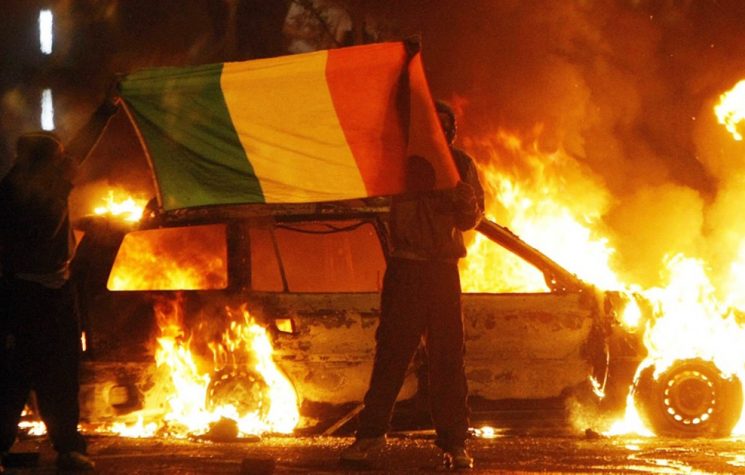It seems that Russia and China will remain aloof and patient – waiting upon structures to crack, Alastair Crooke writes.
Jeffrey Tucker, in a piece entitled How Close Is Total Social and Economic Collapse?, writes, “Economies and societies fall apart slowly, then a bit more, then all at once. We seem to be in the middle period of this trajectory [in the U.S.]. The slow part began March 2020 when politicians around the world imagined that it would be no big deal to shut down the economy and restart it once the virus went away”. What a beautiful display of the power of ‘science-driven’ government it would be – Technocracy on a war-footing.
But, “[n]one of it worked. You cannot turn off an economy and normal social functioning and then turn them back on like a light switch. The attempt alone will necessarily cause unpredictable amounts of long-term breakage, not only of economic structures but also of the spirit of a people. Everything going on now reflects the disastrous presumption that doing that would be possible – and not cause dramatic and lasting damage. It was the greatest failure of politics in a century”.
Everything works until suddenly, it doesn’t. As Minsky said, stability breeds instability. The problem is that complex systems are inherently fragile. The optimization that makes them cost-effective also removes the redundancies that make them resilient. Things can fall apart quickly when some unforeseen event occurs. Not only things; the collective public psyche is a fragile complex system too – it cannot be restored to what it was simply by jabbing the re-set button.
Tucker views this essentially as a failure of judgement. Maybe it is, and maybe it isn’t – which is to say, a judgement failure in the way he means it. Yes, the supply-chain debacle may not adequately have been foreseen; or the self-harm that has resulted from attempting to de-couple from an intertwined economy as ubiquitous as that of China (i.e. microchip disruption).
But perhaps the reason the vaccine strategy is not being reconsidered, but has become cult doctrine on which the Establishment has doubled-down, is that it was conceived at the outset, not just as a means to an end – i.e. creating herd immunity via vaccines – but also an end in, and of itself.
Looked at in this way, we can perceive not just ‘one failure’ – that a V-shaped recovery on re-start, was presented as gospel – but rather, a series of related judgmental ‘failures’. These may give the appearance of being a troupe of wandering errors of well-intentioned, yet flawed analysis, though in fact, they were always connected by being conceived at the outset as ends in, and of themselves.
The commonality to these ‘errors’ lies with their being of ‘one project’ – being of one ‘genus’ – and not simply being a string of accidents of error.
The ostensible logic is that by ‘nudging’ almost everyone to get vaccinated, it will help achieve herd immunity, and thereby eliminate the virus. Is the Tucker-like flaw here that it was assumed that the vaccines were not ‘leaky’ in respect to variants; or that the vaccinated would not be vulnerable to infection; or that the vaccinated would not carry, shed and transmit the virus; or that any protection would not degrade in weeks or months? Perhaps they misunderstood the history of the SARS family of virus (to be not particularly susceptible to vaccines, from their tendency to slide sidewise into variants); or then again, maybe mass vaccination is also an end in itself?
No vax, no job? The unvaxed have become ‘the enemy’, in exactly the way that philosopher Carl Schmitt said that casting an ‘enemy’ is supposed to work: the assignment of a label so black and so unremittingly ‘other’ that mediation with such ‘monsters’ ‘who put the lives of others at risk’ becomes inconceivable. Such black and white Manicheanism is the essence of politics, Schmitt wrote approvingly. In Italy, for example, representatives of the political, medical and media establishment have openly accused the unvaccinated of being “rats”, “subhumans” and “criminals”, who deserve to be “excluded from public life” and “from the national health service” and even deserve to “die like flies”.
Is this another failure of thinking clearly? The inability of leaders to comprehend how such language tears society apart; that a society will not return to normal social and functioning, directly on the Green Pass ‘switch’ being turned off (if it ever is)?
Or, is it an end in itself? – Vaccination as a proxy for political loyalty – the majority defining itself in polar opposition to a demonized minority: ‘Holding the wrong political ideology makes you unclean’. You should be purged. Perhaps that is why the Biden administration is also not concerned about mass firings (and its economic disruptions) – because It helps purify the country of Trump-supporting recalcitrants?
Most obviously, the rushed ‘greening project’ tied to a declared climate ‘emergency’ is a counterpart to the shut-down and vaccine flaw. It seems that this similarly was imagined as straight-forward: the world would pirouette away from dirty to clean energy, through carbon ‘mandates’ that would shut-down both personal and collective carbon profligacy. And the economy then would be re-booted after $150 trillion had been spent on green renewables. Another display of the power of ‘science-driven’ governments, run by experts, supposedly untainted by partisanship, or expectations of personal gain.
Again, it’s not working: You cannot just ‘turn off’ a fossil-fuel based economy, and then turn it back on, a short-while later, as a green-washed ‘net zero’ one.
We may, on the one hand, perceive this as a simple failure to appreciate the practical impediments that have given the world its energy crunch, and its concomitant huge cost-hikes for consumers – albeit triggered, we are told, out of a pure concern to save the planet.
Or, on the other hand, is the carbon mandate also an end in, and of itself? i.e. the transition to a global technocratic managerial class, and the transfer of key policy tools away from the national level to the supranational? If so, this too, is not working. The social costs of the energy price shock will ripple across politics and cause further breakages in the economy.
And, is the associated shift from traditional economic management to Modern Monetary Theory (MMT) – which happened to overlap with the pandemic shut down – a simple coincidence arising out of the need to act to protect people during the Covid crisis? One that has witnessed the Central Banks’ ‘creation’ of $30 trillion of liquidity injected into economies, as pandemic support. Was this then, just an unfortunate misappreciation of the risks of generating (non-transitory) inflation that would impoverish consumers, and possibly provoke economic recession?
Or, was it an end in itself, too – conceived at the outset as the jet-fuel that would finance the transition from hyper-financialised individualist capitalism (that is acknowledged even by the technocrats) to be no longer sustainable, to a stockholder corporate managerialism that would largely displace individual property rights, in favour of broader ESG, social, environmental, and diversity visions of stockholder corporatism?
As long ago as 1941, James Burnham in The Managerial Revolution, was making the case that the old paradigm of labour versus capitalism was passé; that progressive evolution would transition the world away from the capitalist-socialist dialectic to a new synthesis – an organizational structure made up of an élite managerial technocratic class – a type of society that was both ‘socialist’ (ESG and woke), yet also corporate entrepreneurial. It would be led by experts that understood problems beyond the ken of the public. Burnham believed this was in process to replace capitalism on a world scale (‘Davos’ calls it stockholder corporatism today).
Does this have an end in itself? Of course – the elite oligarchic class is preserved, and controls money and credit, albeit now at a supranational level, (i.e. the ECB practicing strict credit rationing for companies, according to its own Green doctrines). But this isn’t working so well either: We are experiencing both an energy ‘price-shock’, and disruptive inflation (more breakages).
At the international geo-political plane, things don’t seem to be working either. Team Biden says it wants a ‘managed competition’ with China, but why then send Wendy Sherman (who is not noted for her diplomatic skills) to China as Biden’s envoy? Why has there been this continuous chip-chipping away at the 1972 ‘One China’ policy with a series of small, seemingly innocuous moves on Taiwan if Team Biden wants contained competition (what he said he wants in a recent call with President Xi), but falters, time after time, to instigate a serious relationship?
Does the Team not understand that it is not ‘containing’ competition, but rather playing-with-fire, through its’ opaque hints that the U.S. might support Taiwan independence?
And then, why of all people, despatch Victoria Nuland to Moscow, if the competition with Moscow was to be quietly ‘balanced out’ as Biden’s face-to-face with Putin in Geneva seemed to signal? Like Sherman, Nuland was not received at a senior level, and her ‘Maidan arsonist’ reputation of course preceded her in Moscow. And why decimate Russia’s diplomatic representation at NATO HQ, and why have Secretary Austin talk in Georgia and Ukraine of NATO’s ‘open door’?
Is there some hidden logic to this, or were these envoys intentionally sent as some kind of ‘kick-ass’ provocative gesture to underline who’s boss (i.e. America is Back!)? This is known in Washington as ‘capitulation diplomacy’ – competitors are presented with only the terms of their capitulation. If so, it didn’t work. Both envoys effectively were sent packing, and Washington’s relations with these key states are degraded to near zero.
The Russia-China axis have come to the conclusion that polite diplomatic discourse with Washington is like water off a duck’s back. The U.S. and its European protégés simply do not hear what Moscow or Beijing says to them – so what is the point to talking to ‘tin-eared’ Americans? Answer: None.
Tucker wrote in respect to pandemic lockdowns that “everything going on now reflects the disastrous presumption that [continuing] doing that [which it was already doing] would be possible, and not cause dramatic and lasting damage. It was the greatest failure of politics in a century”. Is this true for America’s foreign policy too (i.e. capitulation diplomacy)?
Is it assumed that the way for America to retain global primacy is to continue coat-trailing China on Taiwan and its One China policy; and to coat-trail Russia on NATO membership for Ukraine? And that repeated hints at bilaterals with a folksy Biden are all that is necessary to stop events spiralling out of control?
Is all this coat-trailing and provocation simply Team Biden misjudging how serious China and Russia are about their Red Lines ‘meaning it’, or, is it an end in itself? (As an aside, Burnham was clear that many wars would have to be fought before a managerial society could fully take hold. These wars would lead to the destruction of sovereign nation states, such that only a small number of great nations would survive, culminating into the nuclei of three ‘super-states’. Burnham believed that “sovereignty will be restricted to the few super-states”.)
Tucker’s initial question, we should recall, was How Close Is Total Social and Economic Collapse? Our point in this piece is that this litany of failures are linked by being conceived at the outset, as ends in, and of themselves. And to one extent or another, none are working. So is a perfect storm gathering?
The commonality to these distinct ‘errors’ lies with their being ‘one project’ – a stealth coup of the policy tools and structures of public accountability, at the national level, and their transfer to the supranational plane (also known as the Re-Set). They derive, all, from the cult of technocratic managerialism. In the last analysis, Tucker is right: In the pursuit of this project, and its failing flock of subsets, “the attempt alone will necessarily cause unpredictable amounts of long-term breakage, not only of economic structures but also of the spirit of a people”.
Cults historically are dismissive of fragility in complex systems. They are focussed on the means to ‘ends’. They would not necessarily see Tucker’s ‘breakages’ even as breakage. Human attitudes and behaviour – i.e. people – are seen as an obstruction, and as Biden repeatedly warns, “if people won’t help, they must get out of the way of vaccine rules … get out of the way of people doing the right thing”.
It seems that Russia and China, seeing all this, will remain aloof and patient – waiting upon structures to crack.













